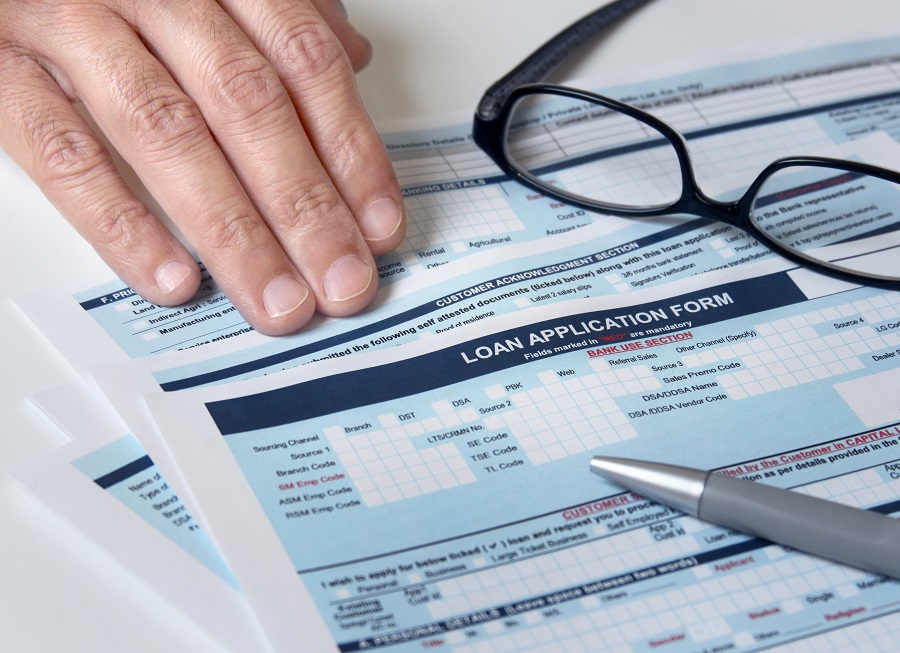Getting a personal loan can be a smart financial decision for consolidating debt, financing a major purchase, paying medical bills, or covering unexpected expenses. However, the loan process can be tricky, and making the wrong decision can lead to higher interest rates, hidden fees, or even loan rejection. In this article, we will cover the most common mistakes people make when applying for a personal loan and provide practical tips on how to avoid them.
Topics covered in this article:
- Failing to Understand Your Credit Score
- Not Shopping Around
- Overlooking Hidden Fees
- Borrowing More Than Necessary
- Neglecting to Read the Terms and Conditions
- Neglecting to Consider Alternatives
- Ignoring the Impact on Your Long-term Financial Goals
- Not Having a Repayment Plan
- Undervaluing a Co-Signer
- Underestimating the Value of Professional Advice
Top 10 Common Mistakes Personal Loan Applicants Make
Securing a personal loan can be a valuable financial solution, but it’s essential to approach the process with caution and diligence. Overlooking certain factors can lead to unfavorable terms, higher interest rates, or even rejection. To help you navigate this financial journey smoothly, let’s explore some common mistakes to avoid while getting a personal loan and address related concerns.
1. Failing to Understand Your Credit Score
Your credit score is a crucial factor that lenders consider when evaluating your loan application. A higher credit score can significantly improve your chances of securing a favorable loan with lower interest rates. Before applying, it’s essential to check your credit report and address any errors or discrepancies that may negatively impact your score.
Additionally, many experts recommend monitoring your credit score regularly to ensure accuracy and identify potential issues early on. This proactive approach can help you maintain a healthy credit profile and increase your chances of loan approval.
2. Not Shopping Around
Different lenders offer varying interest rates, fees, and terms. Failing to compare multiple lenders can result in missing out on better deals. Take the time to research and compare offers from banks, credit unions, and online lending platforms to find the most suitable option for your financial situation.
When comparing lenders and loan offers, consider factors such as interest rates, fees, repayment terms, and customer reviews. Shopping multiple lenders for the best loan is especially important if you have bad credit. The lenders know your options are limited; they may take advantage of that.
3. Overlooking Hidden Fees
While the advertised interest rate may seem attractive, it’s essential to scrutinize the fine print for any hidden fees, such as origination fees, prepayment penalties, or late payment charges. These additional costs can significantly increase the overall cost of the loan, making it less affordable in the long run.
Be sure to carefully review the loan agreement and ask the lender to clarify any fees or charges you don’t understand. Transparency is key when it comes to personal loans.
4. Borrowing More Than Necessary
Borrowing more than you need can lead to unnecessary debt. Carefully assess your financial needs and borrow only the amount you need to avoid overextending yourself financially.
Create a detailed budget and prioritize your expenses to determine the amount you need to borrow before you apply for a personal loan.
5. Neglecting to Read the Terms and Conditions
Before signing any loan agreement, thoroughly read and understand the terms and conditions. Pay close attention to the repayment schedule, interest rate, and any penalties or fees associated with the loan.
Additionally, be wary of predatory lending practices and lenders who offer loans with unreasonably high interest rates or unfavorable terms.

6. Neglecting to Consider Alternatives
While personal loans can be a convenient solution, it’s important to explore alternative options that may better suit your financial situation. For instance, [borrowing from a 401(k) or IRA may be a viable option for some individuals, although it’s important to understand the potential tax implications and risks involved.
7. Ignoring the Impact on Your Long-term Financial Goals
Taking out a personal loan without considering how it fits into your long-term financial plans can become problematic. Think about how the loan repayments will affect your ability to plan for major events such as buying a house, funding your child’s college education, or retirement account contributions.
8. Not Having a Repayment Plan
You must also have a clear and realistic plan to repay the personal loan. Failing to plan your budget accordingly can lead to missed payments, additional fees, and damage to your credit score. Consider setting up automatic payments to avoid missing due dates.
9. Undervaluing a Co-Signer
If your credit score is less than ideal, having a co-signer with a strong credit history can improve your chances of loan approval and help you secure better terms. However, it’s crucial to understand that a co-signer is equally responsible for the loan, and any missed payments can negatively impact their credit as well. Before signing the loan documents, make sure you and your co-signer are fully aware of the responsibilities involved.
10. Underestimating the Value of Professional Advice
Consulting with a financial advisor before applying for a personal loan will provide valuable insights to help you make informed decisions. A professional can assist you in understanding the terms, comparing offers, and developing a repayment plan that aligns with your financial goals.
Need more information on consumer loans, including personal loans? Check out these trusted resources:
- The Pew Charitable Trusts: Pew Charitable Trusts provides valuable insights and guidance for borrowers.
- Federal Trade Commission’s Consumer Information page: Learn about your rights and make informed financial decisions at the FTC’s Consumer Information page Federal Trade Commission Consumer Information.

